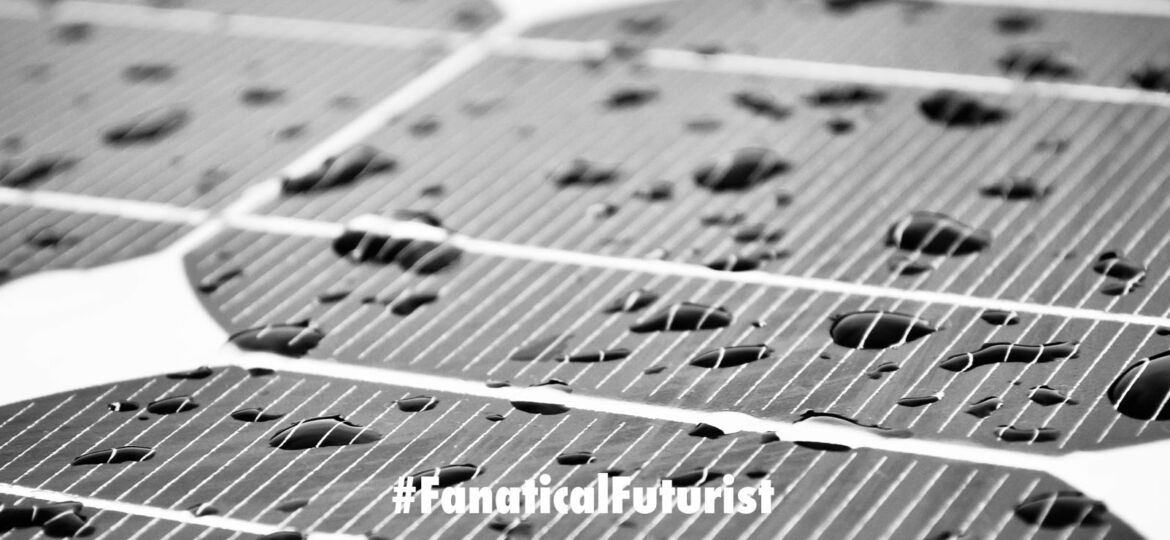
WHY THIS MATTERS IN BRIEF
A new range of all weather solar panels could help further reduce the world’s reliance on fossil fuels and make renewable energy an even more attractive proposition.
Solar panel technology has changed the way many people bring energy into their homes, but it’s always had a flaw – solar panels are less effective, or at worst useless, if the weather conditions aren’t just right and they can only hold a charge for so long.
So if you live in a part of the world that’s always buried under clouds and drenched by rain then you might as well say goodbye to your dreams of living using renewable energy. That is until now… While engineers and material scientists have been able to make their efficiency far better over the years, with solar panels that store decent amounts of energy to be used when sun is not readily available, there has never quite been a development like this one. Chinese scientists have announced that they’re able to create electricity with the assistance of raindrops thanks to a thin layer of graphene they used to coat their solar cells during testing.
Graphene is known for its conductivity, among many other benefits and apparently, all it takes to turn a solar panel into a “hydro” powered one is a one atom thick layer of graphene that helps an excessive amount of electrons – the very definition of electricity themselves – move as the water washes over the surface of the panel. When water is present the graphene binds its electrons with positively charged ions, using a process called the Lewis acid-base interaction.
The salt contained in rain separates into ions, namely ammonium, calcium and sodium, making graphene and natural water a great combination for creating energy. The water clings to the graphene, forming a dual layer, a pseudocapacitor, with the graphene electrons and the energy difference between these layers is so strong that it generates electricity.
The result is that these new solar cells can be stimulated by light on sunny days and raindrops when it’s raining, and while the results aren’t perfect, with the rain panels converting just 6.5 per cent of the energy they receive, compared to 22.5% for the world’s best solar panels, it’s enough to produce a voltage of hundreds of mV from raindrops.
While the rain-powered cells are only a working concept at the moment, rather than a marketable product, the researchers suggest it can inform future designs.
“The new concept can guide the design of advanced all-weather solar cells,” said the study.

















[…] Source link […]
[…] in over 58 countries, and as solar panel efficiency continues to break records, and even harness energy from rain, the future for the technology has never looked […]